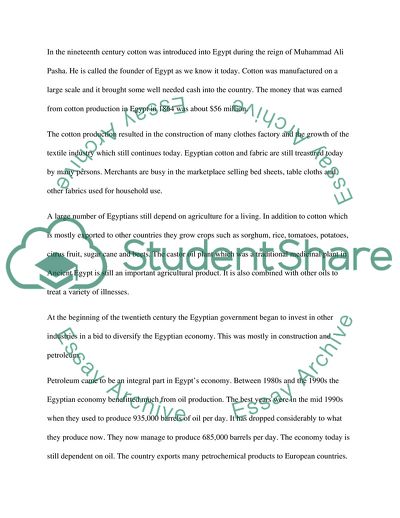Cite this document
(Egyptian Economy and Its Peculiarities Essay Example | Topics and Well Written Essays - 2000 words, n.d.)
Egyptian Economy and Its Peculiarities Essay Example | Topics and Well Written Essays - 2000 words. https://studentshare.org/macro-microeconomics/1746511-economy-of-egypt
Egyptian Economy and Its Peculiarities Essay Example | Topics and Well Written Essays - 2000 words. https://studentshare.org/macro-microeconomics/1746511-economy-of-egypt
(Egyptian Economy and Its Peculiarities Essay Example | Topics and Well Written Essays - 2000 Words)
Egyptian Economy and Its Peculiarities Essay Example | Topics and Well Written Essays - 2000 Words. https://studentshare.org/macro-microeconomics/1746511-economy-of-egypt.
Egyptian Economy and Its Peculiarities Essay Example | Topics and Well Written Essays - 2000 Words. https://studentshare.org/macro-microeconomics/1746511-economy-of-egypt.
“Egyptian Economy and Its Peculiarities Essay Example | Topics and Well Written Essays - 2000 Words”. https://studentshare.org/macro-microeconomics/1746511-economy-of-egypt.


